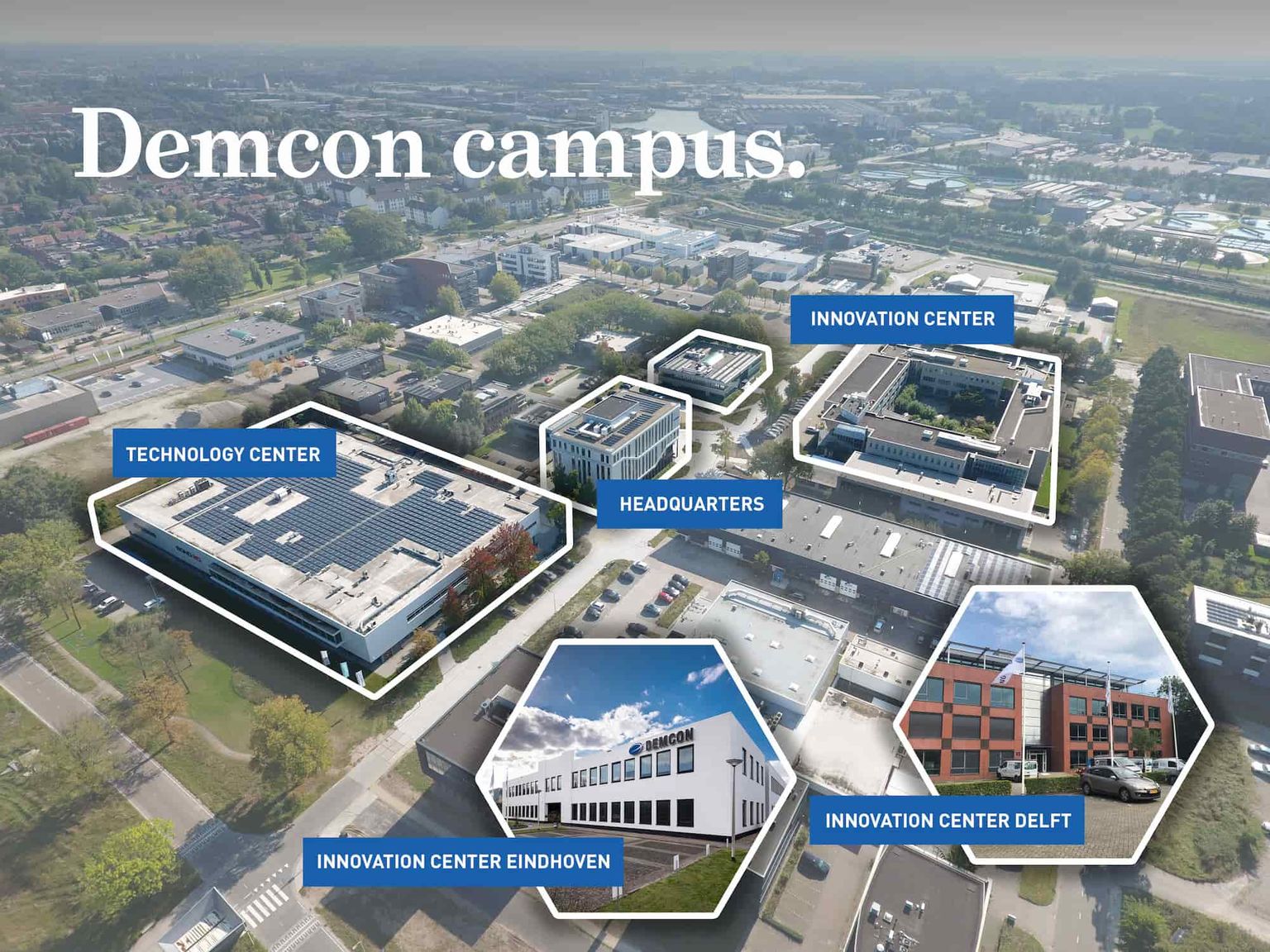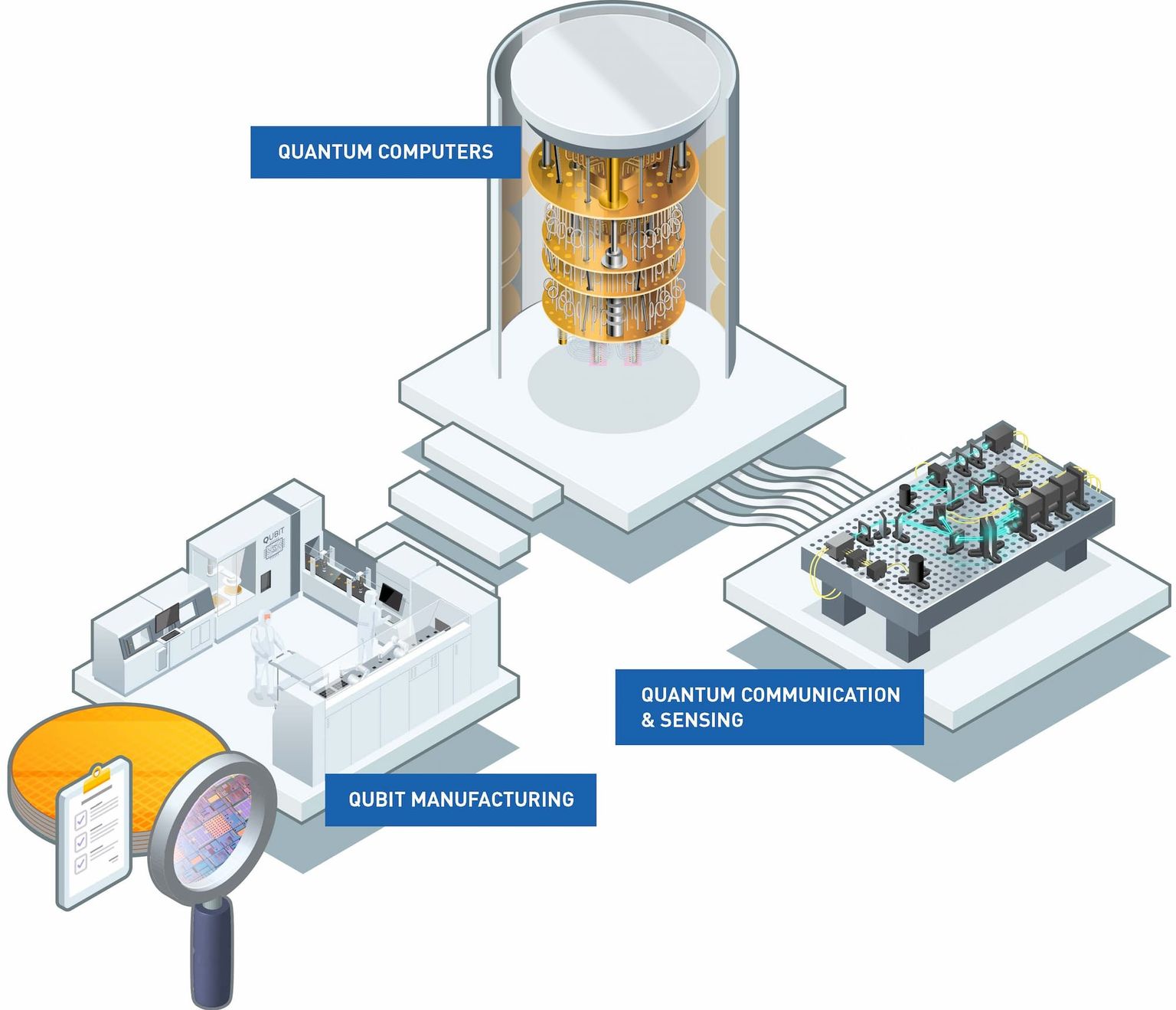Quantum technology is not just a scientific challenge, but also a geopolitical instrument. Those who are in the leading group will soon be the ones setting the rules of the game. Dutch companies and knowledge institutions have already built a strong position. Among others, TU Delft, TNO, and QuTech have laid the foundation from which various spin-offs have emerged. “The Netherlands has truly played a pioneering role,” says Vincent Fokkeman, managing director of Demcon high tech systems in Delft. “But that doesn’t mean we can now sit back and relax. The law of the slowing lead applies here too, if others scale up, you can easily be overtaken.”
According to Eric Slakhorst, responsible for the high tech systems division at Demcon, it’s important to realize that “quantum” is not a single, clear-cut concept. “It’s an umbrella term with three main domains: quantum computing, quantum communication, and quantum sensing. Each domain has its own applications, challenges, and impact on industry and society.”
Systems thinking as a driver of quantum innovation
Demcon positions itself as a system integrator within the highly fragmented quantum landscape. Many parties focus on a specific part of the chain, but Demcon brings disciplines together. “The strength of Demcon lies in system engineering and systems thinking,” Fokkema explains. “You not only need to be able to create a qubit, but also protect it, control it, and integrate it into a functioning system that performs calculations. That’s where our added value lies.”
Collaboration within the quantum ecosystem is both intense and competitive, says Slakhorst. “You work together with parties you also supply to, or who see you as a competitor. That creates a unique tension: a non-linear and mutually dependent supply chain.”
A concrete example is the ImpaQt Project, in which Demcon collaborated with other quantum companies to develop an advanced magnetic shield for the first 25-qubit systems. In addition, Demcon also seeks collaboration within an international framework, including for applications in the field of quantum sensing. This involves a great deal of specialized knowledge, for example in the areas of cryogenics, opto-mechatronics, and vacuum technology.

Quantum technology demonstrates how the government can stimulate innovation by facilitating collaboration between science and industry. That has laid the foundation. Startups are now coming into direct contact with technology companies like Demcon. “The business sector, with its speed and agility, is best positioned to translate scientific progress into concrete applications.”

Societal impact of quantum
Demcon wants to go beyond being just a service provider. Slakhorst says: “We also want to be product owners of critical components. Not of complete systems, but of key technologies that are essential to the entire chain. Think of modular components that can be widely applied in quantum setups.”
Quantum technology also offers opportunities to tackle major societal challenges, such as climate change. “With quantum technology, we can perform complex calculations that are not feasible with traditional computer systems,” says Fokkema.
Demcon sees this as an extension of its mission: contributing to a better world through technological innovation. That ambition is supported by a team of around 800 highly educated engineers, 70% of whom are academically educated. The company works on challenging projects for national and international clients, and in doing so manages to attract and retain top talent.
“Our people develop incredibly fast thanks to the diversity of assignments,” says Slakhorst. “And despite the tight labor market, we’re successfully attracting talent, including at our locations in Delft, Eindhoven, and Enschede.”
First concrete applications within five years
The next five to ten years will be decisive for the Netherlands’ position in the quantum field. “I think it’s going faster than many expect,” says Fokkema. “Within five years, we’ll see the first concrete applications. Not directly for consumers, but certainly in the business market, for example in logistics, chemistry, and cybersecurity.”
Slakhorst agrees: “If you look at the major challenges of our time, from secure communication to data processing, you almost automatically end up with quantum technology. And that also means: we need to have that technology in-house. If we want Europe to be independent, we must also build our own quantum computers.”
With the right investments, strong collaborations, and a focus on technological ownership, the Netherlands can not only maintain but also capitalize on its pioneering position. Quantum technology is not a distant dream, but a strategic necessity, according to Fokkema and Slakhorst.
Read the full article in Dutch here: Is the Netherlands ready for the quantum race?
